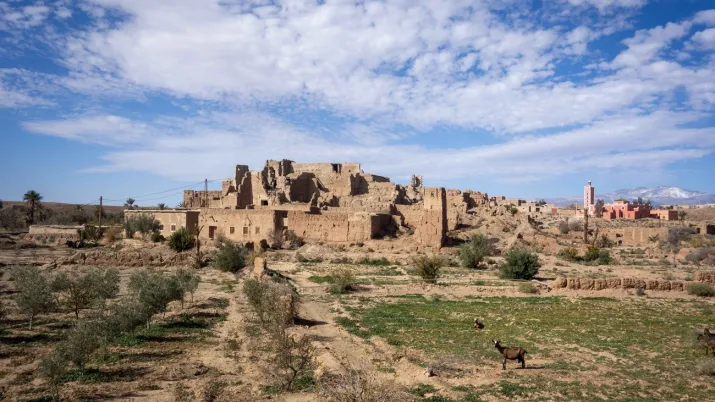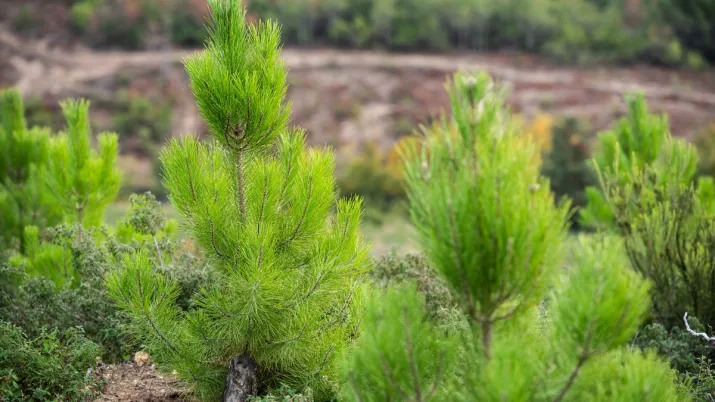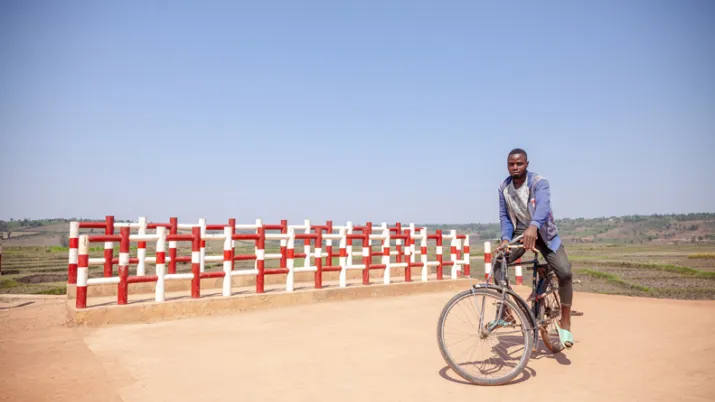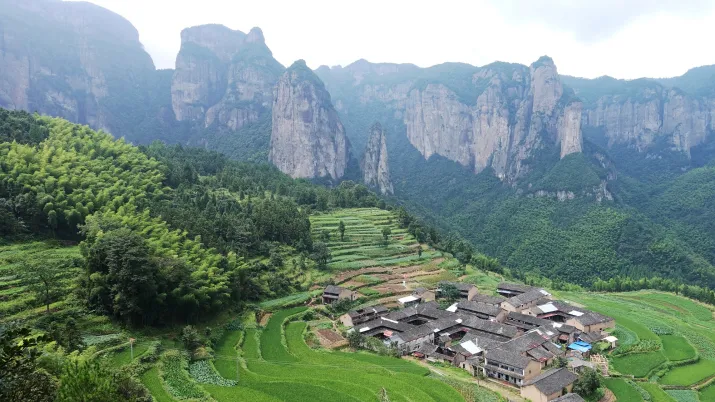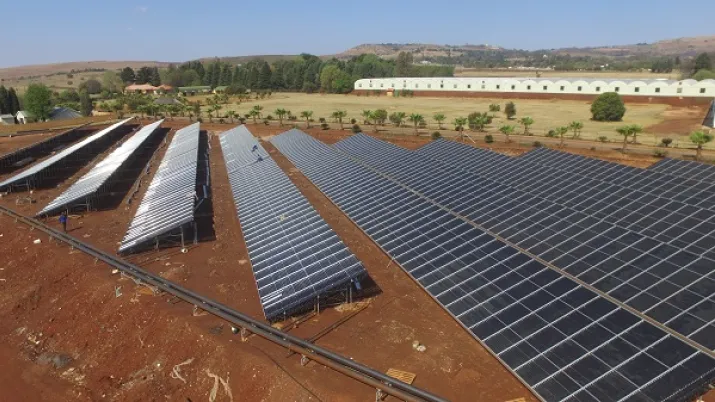Share the page
Climate
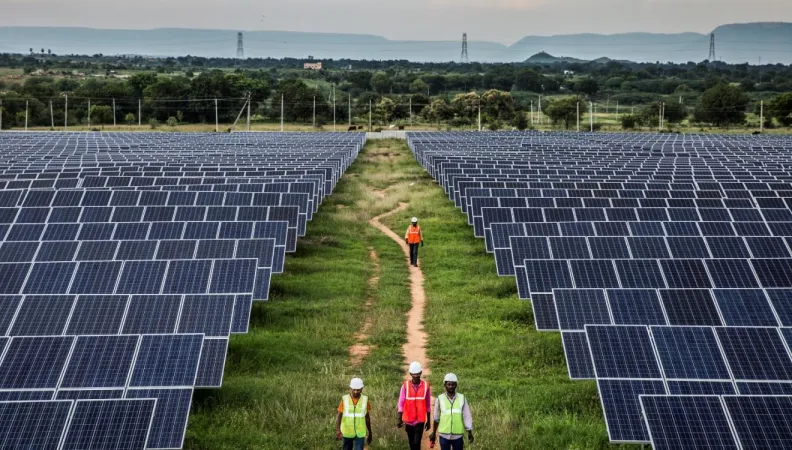
Our commitment
Current models of production and consumption are placing growing pressure on biodiversity and natural resources, while greenhouse gas emissions continue to accelerate climate change.
Since 2005, climate has been a core priority for AFD. This is because climate and development are inseparable challenges, and because, around the world, energy and ecological transitions offer real opportunities.
The time to act is now. Our goal is to ensure that all our projects are 100% aligned with the Paris Agreement.
Climate: Taking action for a more sustainable financial system
Our approach
Droughts, floods, rising sea levels, cyclones... the effects of global warming are becoming increasingly visible across the planet. They are especially severe in developing countries, which are also among the most vulnerable.
For AFD Group, the message is clear. Sustainable development and the fight against poverty are inseparable from action on climate change and the protection of biodiversity and the environment.
This is why, for more than 10 years, we have made climate a core priority, working across three interlinked areas:
- mitigation, helping to limit greenhouse gas emissions
- adaptation, reducing the exposure and vulnerability of people and ecosystems to climate impacts
- support for low-carbon, resilient development, working with governments, communities, and territories to design and implement sustainable development pathways
To achieve this, we use a wide range of financial instruments, including loans, budget support, guarantees, equity investments, grants, and technical assistance. We also mobilize resources from European and international mandates such as the Green Climate Fund. In addition, we place strong emphasis on cofinancing with other national and international donors.
Most recently, we strengthened our climate ambition by setting a clear target in our new climate strategy, adopted in November 2017: to become a development bank that is 100 percent aligned with the Paris Agreement.
With €33.3 billion in climate-related financing approved since 2017, including €6.9 billion in 2022 for developing countries and the French Overseas Departments and Territories, AFD Group is one of the world’s leading international climate finance institutions.
AFD's climate ambition: to be a development bank 100% compatible with the Paris agreement
In 2017, the entire AFD Group undertook to make its activity be 100% compatible with the Paris Agreement. This unprecedented commitment bears witness to our proactive stance in climate matters.
Being “100% Paris Agreement” requires analyzing each of the Group’s interventions to see that they are consistent with long-term low-carbon and resilient development in the country where they are implemented. This analysis is rounded out by an assessment of the level to which our investments are exposed to climate risks, be they physical or related to low-carbon transition policies. These analyses are used in delivering the Sustainable Development Opinion given to projects at the examination stage.
In order to go even further in co-building in climate matters with its partner countries, AFD is setting up the “2050 Facility” dedicated to developing long-term low-carbon and resilient development strategies that the COP21 has asked all countries to produce by 2020.
This commitment comes in addition to another one that already exists within the Group: seeing to it that 50% of annual financing goes to projects that have a direct and beneficial impact on the climate.
In 2022, AFD group committed €6.9 billion to climate financing, representing an increase of 15% compared to 2021 and the highest amount since 2017. Among the projects supported, one in three has co-benefits for biodiversity.
In order to reduce the exposure and vulnerability of societies to the hazards of climate change, the Group has ramped up its efforts to facilitate climate adaptation, allocating €2.2 billion in 2022, twice as much as in 2017.
Climate adaptation is being incorporated into the projects supported by AFD in an increasingly effective way, particularly in the fields of water and sanitation and rural development. In addition, adaptation is being promoted via the second phase of the AdaptAction program, which supports adaptation strategies in vulnerable countries, and through a partnership with the Green Climate Fund, which includes several climate change adaptation programs.
Beyond their role in supporting the most vulnerable countries, which are often the least able to seize the opportunities of the green economy, development banks now play a key role as catalysts. Above all, they help redirect global public and private investment toward financing that supports low-carbon, climate-resilient transitions tailored to national contexts.
AFD aims to maximize the leverage effect of its financing to steer private investment, primarily through credit lines to local banks or direct financing provided by Proparco, the Group’s private-sector subsidiary.
AFD Group is working with its partners to influence and collaborate on the convergence of norms, practices and standards to develop an aligned framework for sustainable finance, particularly in the areas of climate change and biodiversity.
Since 2021, for example, AFD has published the Task Force on Climate-Related Financial Disclosure (TCFD) report, which aims to demonstrate how the Group complies with the highest international standards for incorporating climate-related risks into its governance, as well as the operations it chooses to finance. This integration of climate risks is reflected in its communication with customers and partners. AFD also participates in the international initiative led by the Task Force on Nature-related Financial Disclosure (TNFD), which has developed a common framework for financial institutions and businesses to assess, monitor and disclose financial risks related to biodiversity loss.
Furthermore, continued dialogue with the European Union on the application of the European taxonomy, along with the system of the United Nations and other partners (IFRS-ISSB, Ipsas), is essential to develop a set of standards for sustainable finance. AFD is also involved in a large number of projects which promote better integration of climate and nature into the strategies and operations of the financial institutions it supports, in particular, via the Mainstreaming Climate Action in Financial Institutions initiative.
Accredited by the Green Climate Fund since 2015, AFD supports its partners with the Green Fund accreditation process, and works on program appraisal, whether alone or together with IDFC members. This accreditation helps organizations develop the capacity to identify and appraise climate-friendly projects, while at the same time updating the frameworks, policies and procedures which relate to the accreditation process.
Since 2017, AFD has accommodated the General Secretariat of the International Development Finance Club (IDFC), a unique global network of 26 national, regional and international development banks, 19 of which are based in developing countries. This network is currently co-chaired by the West African Development Bank and Bancóldex.
Having agreed to new financial commitments amounting to nearly $1.2 billion in 2022, 24% of which is earmarked for climate change projects ($282 million), the IDFC is the world’s leading public funder of climate initiatives.
AFD is working with the IDFC in a range of areas, including on the implementation of the Paris Agreement, an accounting methodology for climate financing (for mitigation and adaptation), and the joint commitments made by the IDFC and a group of multilateral development banks at the One Planet Summit (held on December 12, 2017, with these commitments renewed in 2021).
Learn more
|
Climate at the heart of the development of African cities
See the dataviz
|
On the ground
Below, you’ll find projects, news, and publications related to this topic.
News & events
A living laboratory in Türkiye shines a light on the future of French forests
Published on February 5, 2026
Related topics
Key figures
-
€7.7 BN in climate finance committed in 2024 including €3.1 BN dedicated to adaptation
-
€4.6 BN committed to mitigation projects in 2024
-
x3 Threefold growth in annual adaptation financing since 2015
-
100% of the Group’s financing operations are aligned with low-carbon, climate-resilient development at the national level.


